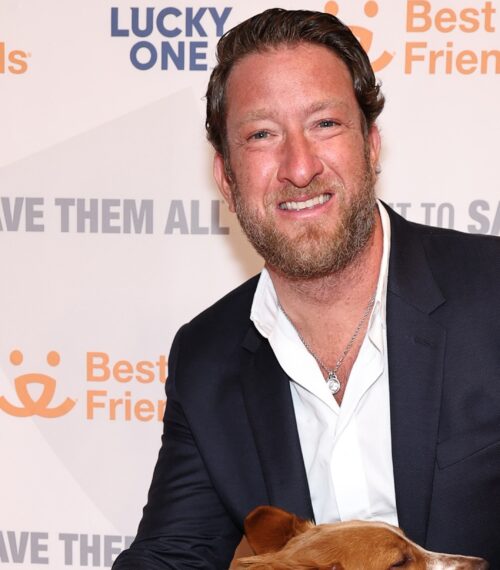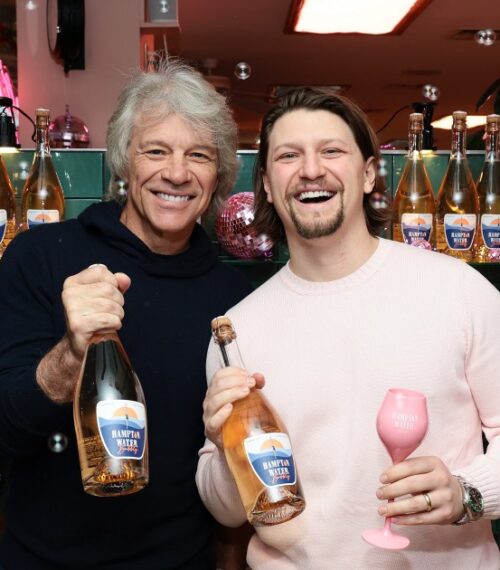Tom Brady has shared a personal revelation about his family’s newest four-legged member, confirming that his dog Junie is a genetic clone of his late pup, Lua. The retired NFL quarterback disclosed the news on Tuesday, November 4, noting that the striking resemblance between the two pit bull mixes isn’t a coincidence.
Lua, whom Brady shared with ex-wife Gisele Bündchen and their children, died in December 2023. In the wake of the loss, the family later welcomed Junie — and now Brady says science helped make that possible.
Tom Brady Confirms Junie Is A Clone Of Late Dog Lua
Brady revealed that biotech company Colossal Biosciences, a firm he invests in, oversaw the cloning process. Speaking to People, Colossal explained that Lua was cloned using blood collected before her death. Brady praised the technology and the care involved, emphasizing that the goal was to honor a deeply loved family member.
"I love my animals. They mean the world to me and my family," Brady said in a statement shared with the outlet. "A few years ago, I worked with Colossal and leveraged their non-invasive cloning technology through a simple blood draw of our family’s elderly dog before she passed."
He added that the company "gave my family a second chance with a clone of our beloved dog," a sentiment that underscores just how central pets can be to a household’s life and routine.
Brady also acknowledged Colossal Biosciences’ acquisition of Viagen Pets and Equine, a well-known name in the pet cloning space. He said he’s "excited how Colossal and Viagen’s tech together can help both families losing their beloved pets while helping to save endangered species." The athlete connected the personal story to a broader mission, pointing to conservation applications that have been part of Colossal’s stated ambitions.
How Colossal Biosciences Made It Happen
According to Colossal, the cloning relied on a pre-death blood sample from Lua — a step that allows scientists to preserve an animal’s genetic material. While the company did not dive into exhaustive technical details in this instance, pet cloning processes typically involve creating a genetically identical embryo and implanting it in a surrogate. The result is a new animal with the original pet’s DNA.
Brady’s framing of the process stresses both the non-invasive collection method used for Lua and the emotional motivation behind pursuing it. For families who have experienced the loss of a beloved pet, cloning is presented as a high-tech way to keep a piece of that bond alive. At the same time, Brady highlighted the potential for these tools to be applied beyond household pets, pointing to wildlife conservation and endangered species as areas where such technologies could have meaningful impact.
Junie’s resemblance to Lua has sparked conversation about what cloning can and cannot replicate. While genetics can mirror appearance and certain traits, a pet’s personality and lived experiences are often shaped by environment, training, and the unique moments they share with their families. Brady’s announcement, however, clearly positions Junie as a treasured continuation of the love his family had for Lua.
Fans React: Heartwarming, Mind-Blowing — And A Little “Black Mirror”
As soon as Brady’s story surfaced, social media lit up with reactions that ranged from inspired to uneasy. Many fans were deeply moved by the idea that a family could find comfort through science after losing a pet.
"That’s both touching and mind-blowing. Brady’s love for his pets is next level, and science making it possible to keep a piece of Lua alive through Junie is straight out of the future. Shows how far technology can go when it meets genuine love," one person wrote on X (formerly Twitter).
Another user echoed the sentiment: "This is both fascinating and incredibly heartwarming. That bond with a pet is irreplaceable, and I can only imagine the comfort this brings him and his family. The love is real."
Others admitted they were curious but unsure. "Woah, I heard about this before just not of many people doing it — i have so many questions like, does it act the same? bark the same? did it grow in a lab? Lol," one commenter posted. The questions reflect a broader public interest in the differences between genetic identity and real-life behavior.
Not everyone was on board. Some critics called the concept "scary," raising ethical concerns around pet cloning and how far people should go to recreate life. "This is how a horror movie starts. Too much money and no idea what to spend it on. Life is special because it comes to an end. It’s what makes those times you spend with your pets, loved ones, friends etc., so special. Playing God with stuff like this only ends badly," one skeptical post read.
Another user summed up the unease with a pop-culture nod: "So he cloned his dog, kept the same name, same face, same love story… this man’s living in a Black Mirror episode."
Brady hasn’t responded to the online debate beyond his statement, but his message was clear: for his family, the decision to clone Lua was personal and deeply felt. Whether viewed as a groundbreaking reunion or a step too far, the reveal has placed the ongoing conversation around pet cloning — and its expanding role in both homes and conservation — back in the spotlight.
For now, Junie is part of the Brady household, a living tribute to a dog they loved and lost. And in sharing that journey, Brady has opened a window into how cutting-edge science is reshaping the way people grieve, remember, and hold on to the bonds that matter most.















































































































